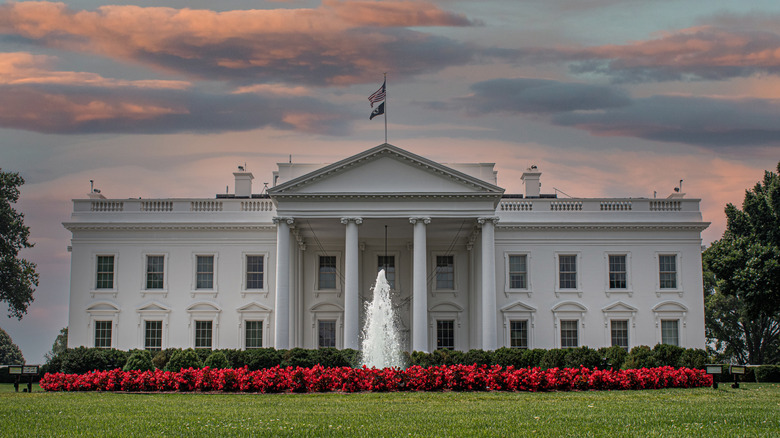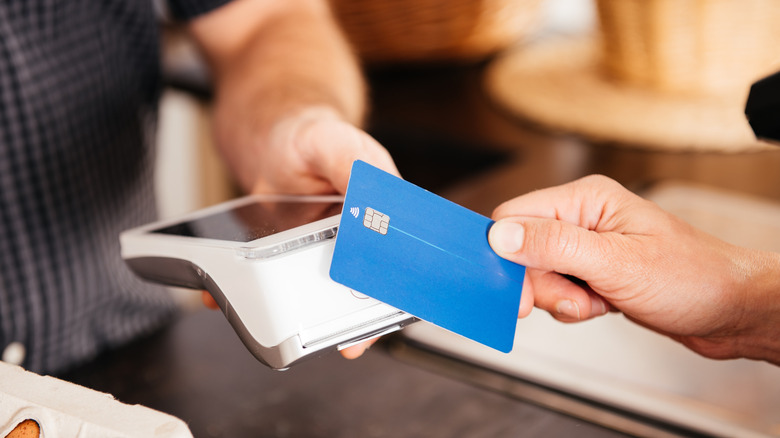How Grocery Shopping Works When You're President Of The United States
How many people have run into the president of the United States while strolling the aisles of a grocery store? The answer is zero. While even the cost of bread at the most overpriced grocery store in the U.S. probably wouldn't faze the presidential family, they aren't the ones doing the shopping. Unsurprisingly, it's a security risk to send anyone from the First Family out to pick up ingredients for dinner, so there's a specialized team of people who do it for them.
The Presidential Food Service has been serving the Commander-in-Chief and family since 1880, when then-President Rutherford B. Hayes was provided with the first presidential yacht. The Navy handled food service for the yacht and extended this convenience to the White House in 1951 with the establishment of the White House Mess, or dining area. The U.S. Navy trains and assigns a team of culinary experts to do everything from grocery shopping to preparing the president's favorite breakfasts or snacks.
While many of us who are not a part of the First Family do our grocery shopping each week, there are specific personnel assigned to buy food for the White House kitchen. Many of the groceries are ordered through approved locations, but the in-person outings take place at various farmers' markets and stores during seemingly random hours to avoid anyone catching on to who it is they're shopping for. The frequent purchases can likely lead to a hefty grocery bill, but that's one thing taxpayers don't need to worry about.
The president pays their own grocery bill
In an interview with Jimmy Kimmel, former First Lady Michelle Obama revealed a little secret — the president pays for their groceries, not taxpayers. This should make perfect sense, but it can still come as a surprise to those who aren't familiar with how life works in the White House. Those doing the shopping must keep the wants and needs of the First Family in mind. The personnel know their likes, dislikes, and allergies, and do their best to anticipate any food cravings that may occur. These requirements mean that shopping for groceries in the White House includes securing at least a small amount of favorite and frequently consumed goods.
Of course, while grocery prices have changed the way we shop, it isn't likely that the president is altering any grocery habits due to cost. There are still some presidential affairs in which the American public is footing the bill. Elaborate state dinners, which can cost thousands of dollars and cater to the requests of attendees, aren't being added to the president's tab anytime soon. However, private affairs, like family or personal friend gatherings, are paid for with the president's $400,000 salary.

